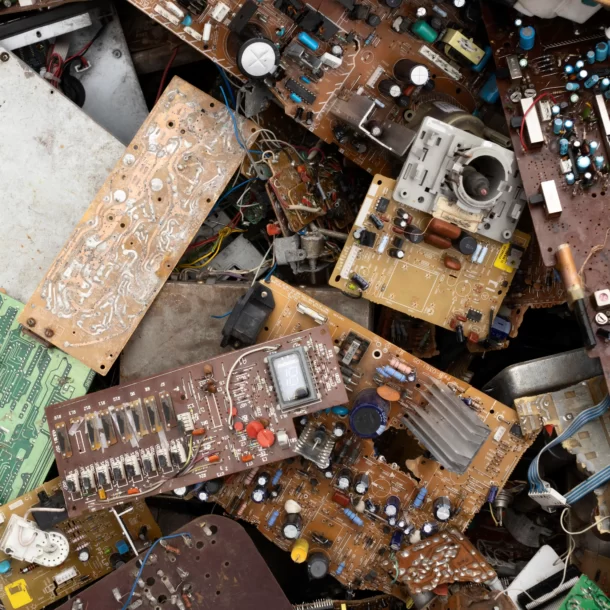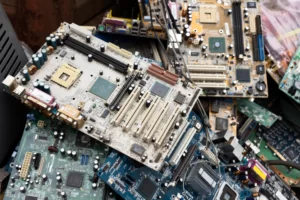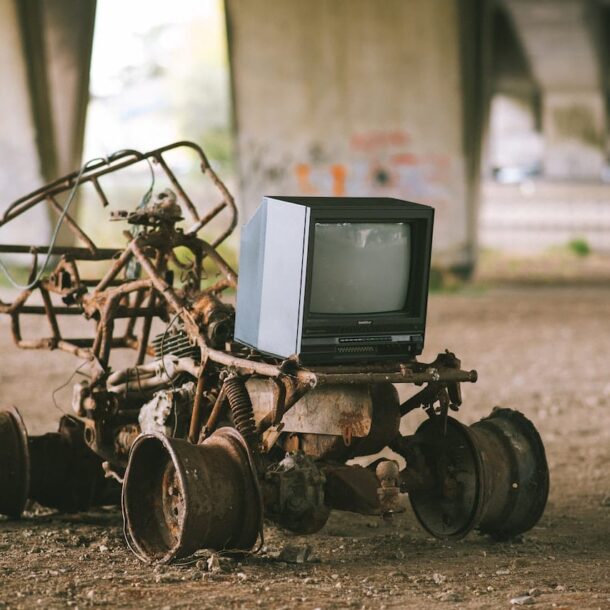
Circular Economy and E-Waste Management: India’s Path to Sustainability
As technology continues to advance at a rapid pace, electronic devices are becoming increasingly indispensable in our daily lives. However, this progress comes at a cost: the generation of electronic waste, or e-waste. India, as one of the world’s fastest-growing economies, faces a significant challenge in managing this mounting e-waste. This blog explores how the implementation of a circular economy approach can pave the way for sustainable e-waste management in India.
Understanding the Circular Economy
The circular economy is an alternative to the traditional linear economy, which follows a “take-make-dispose” model. In contrast, the circular economy aims to keep resources in use for as long as possible, extracting maximum value from them while minimizing waste and negative environmental impacts. It emphasizes reducing, reusing, recycling, and recovering materials to create a closed-loop system.

E-Waste Management in India
E-Waste Management in India is one of the largest producers of e-waste globally, with over 2 million tons generated each year. However, the management of this e-waste remains a significant challenge. Improper disposal of electronic devices can lead to environmental pollution and health hazards due to the presence of hazardous substances like lead, mercury, and cadmium.
Circular Economy Strategies for E-Waste Management To address the e-waste challenge
India needs to adopt circular economy strategies. One such strategy is establishing a robust e-waste recycling infrastructure. This involves setting up collection centers, dismantling units, and recycling facilities to ensure proper disposal and recovery of valuable materials from e-waste. Additionally, encouraging manufacturers to design products with recyclability and repairability in mind can facilitate the recycling process.
Promoting Sustainability in E-Waste Management
Extended Producer Responsibility (EPR) is a key principle in sustainable e-waste management. It places the responsibility for the entire lifecycle of electronic products on the producers, including collection, recycling, and safe disposal. By implementing EPR regulations and enforcing them strictly, India can ensure that manufacturers take active measures to manage the e-waste generated by their products.
Several success stories and best practices from around the world can serve as inspiration for India’s e-waste management journey. Countries like Japan, Switzerland, and Sweden have implemented effective recycling systems and achieved high e-waste recycling rates. Learning from these examples can help India develop tailored strategies and adopt innovative technologies for efficient e-waste management.

India’s path to sustainability in e-waste management lies in embracing the principles of the circular economy and implementing robust policies and regulations. Collaboration between the government, manufacturers, consumers, and recycling industries is crucial to establish a sustainable e-waste management ecosystem. Investing in research and development to find environmentally friendly ways to recycle and recover materials from e-waste will also contribute to a greener future.
By prioritizing the circular economy and adopting responsible practices, India can transform its e-waste challenge into an opportunity for economic growth, job creation, and environmental preservation. Together, let us strive towards a sustainable future where e-waste becomes a valuable resource rather than a burden on our planet.

